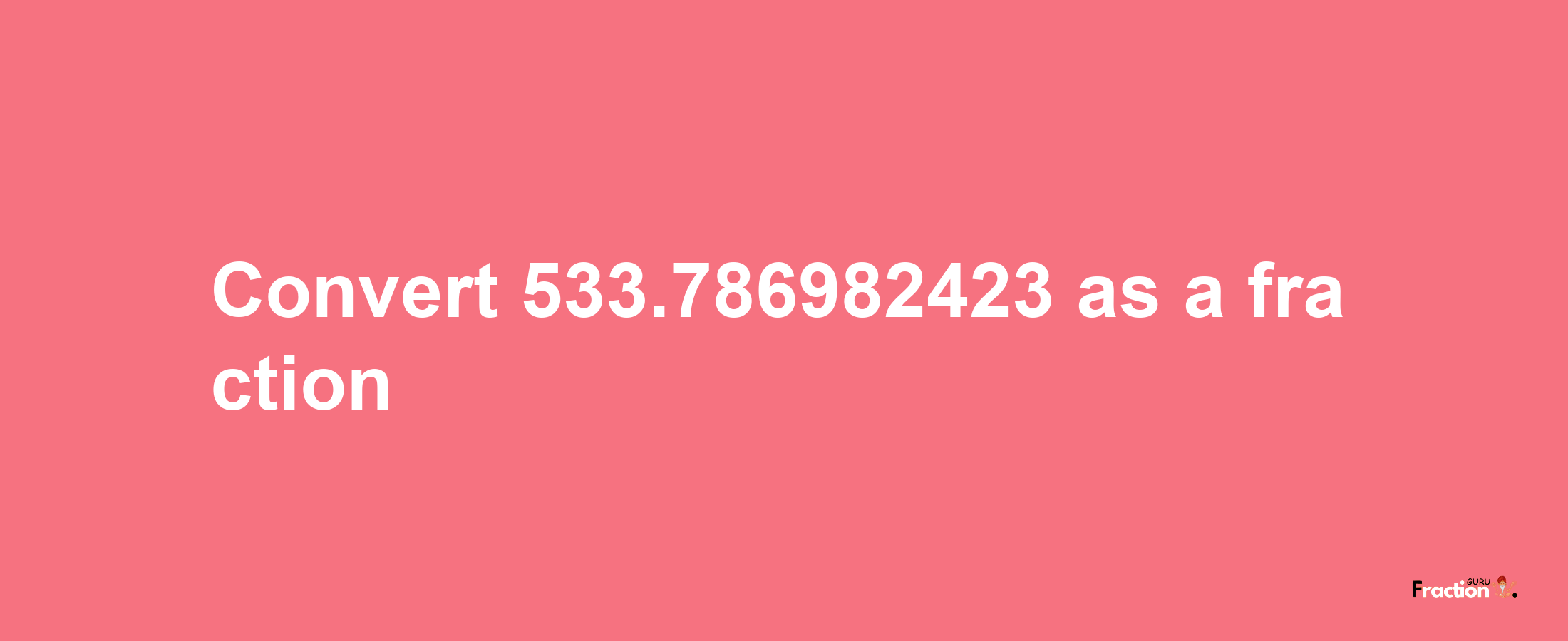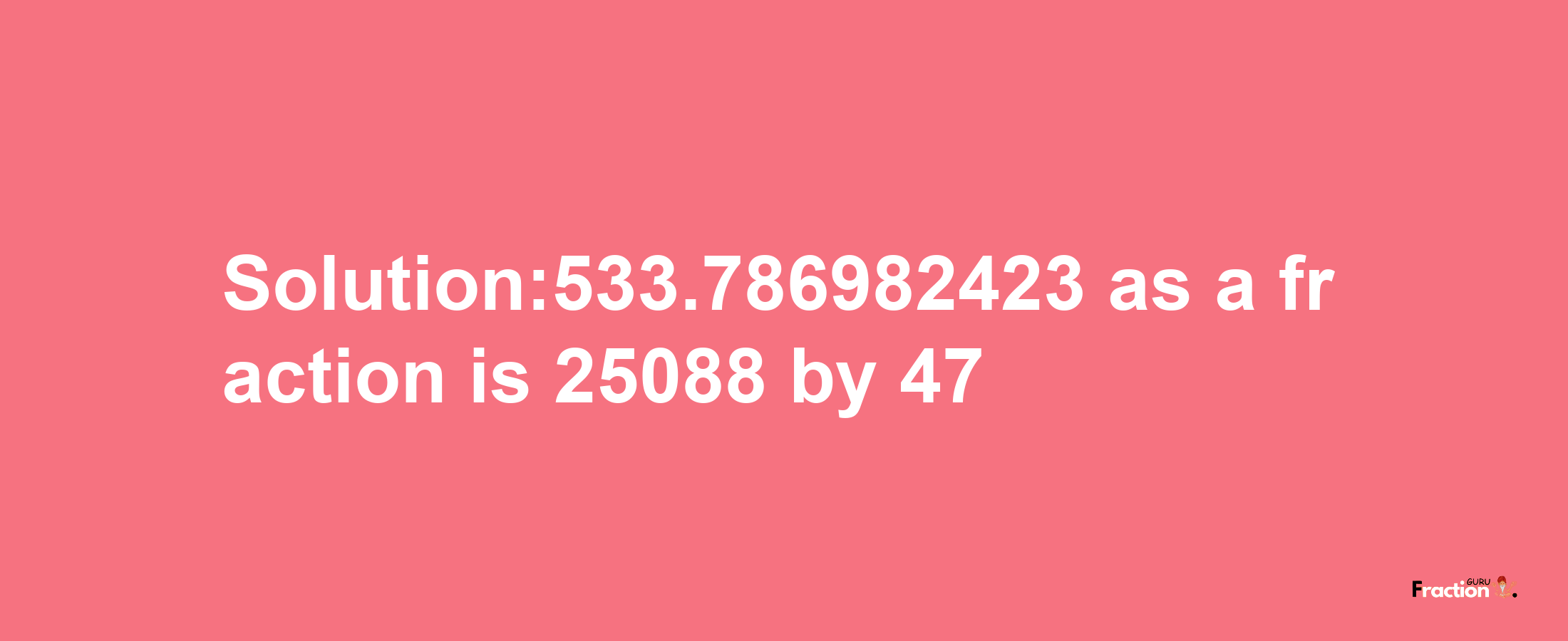Step 1:
The first step to converting 533.786982423 to a fraction is to re-write 533.786982423 in the form p/q where p and q are both positive integers. To start with, 533.786982423 can be written as simply 533.786982423/1 to technically be written as a fraction.
Step 2:
Next, we will count the number of fractional digits after the decimal point in 533.786982423, which in this case is 9. For however many digits after the decimal point there are, we will multiply the numerator and denominator of 533.786982423/1 each by 10 to the power of that many digits. So, in this case, we will multiply the numerator and denominator of 533.786982423/1 each by 1000000000:
Step 3:
Now the last step is to simplify the fraction (if possible) by finding similar factors and cancelling them out, which leads to the following answer for 533.786982423 as a fraction:
25088/47 / 1


